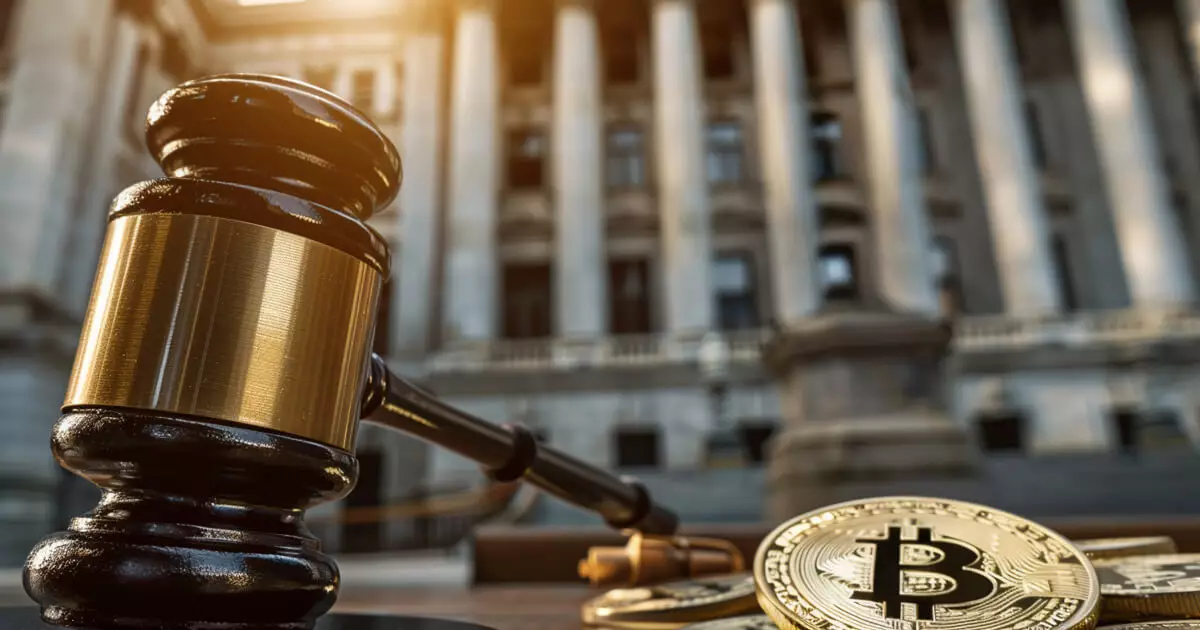The Satoshi Action Fund is stepping into the spotlight with a determined mission: to secure state-level legal protections for individual Bitcoin self-custody. Drawing inspiration from the cannabis industry’s successful navigation of federal prohibitions, the Fund aims to create “safe haven” states where Bitcoin users can operate with a degree of legal confidence. This piece will delve into the activities of the Satoshi Action Fund, the implications of such legislative moves, the critical legal interpretations surrounding them, and the broader significance of state action in the realm of cryptocurrency.
Dennis Porter, the CEO and co-founder of the Satoshi Action Fund, is leading a campaign that mirrors the tactical maneuvers of the cannabis sector as they faced challenges posed by federal law. His perspective underscores an essential legal principle: state laws can provide room for maneuvering in contexts where federal laws remain ambiguous or prohibitive. Porter asserts that “if federal law contradicts state law, the federal government is required to enforce it” without necessitating cooperation from state law enforcement.
This situation echoes the cannabis industry’s journey through a legislative minefield. Porter highlights that despite federal prohibitions, many states have successfully established regulations surrounding cannabis use, leading to its burgeoning market. The aim for Bitcoin advocates is clear: to avoid the decades-long delay that hampered cannabis advocates, the Satoshi Action Fund seeks to initiate proactive legislation that safeguards Bitcoin rights at state levels.
Porter’s strategic reasoning ties back to historical precedents set by earlier social movements, including suffrage, civil rights, and same-sex marriage. Each of these movements demonstrated how state-level activism can pave the way for broader federal acceptance and legislative action. As Porter notes, when multiple states engage in progressive legislative activity, it provokes a necessary response from the federal government.
However, for all the optimism surrounding this approach, legal scholars like attorney Joe Carlasare remind us of the complexities inherent in the supremacy of federal law. Carlasare candidly states that federal law dominates state legislation, meaning if the federal government decides to intervene, state protections might not withstand such challenges. Nevertheless, he concedes that a federal ban on self-custody practices faces substantial legal obstacles.
One significant development in this state-level movement is the passage of House Bill 2481, or the “Bitcoin Rights” bill, in Pennsylvania. This legislation has garnered bipartisan support, passing in the House of Representatives by a decisive 176-26 vote. If adopted into law by the Republican-controlled Senate, it would officially entrench residents’ rights to manage their digital assets independently and establish a framework for taxing Bitcoin transactions.
The significance of Pennsylvania’s actions cannot be understated. Recognized as a pivotal swing state with approximately 1.5 million cryptocurrency users, the state emerges as a bedrock for potential legislative innovation aimed at protecting cryptocurrency rights. The successful passage of this bill signals a growing momentum for similar initiatives across other states, prompting a ripple effect in advocacy efforts nationwide.
The emergence of state-backed protections for Bitcoin paints a progressive landscape where users could experience a distinct shift in their legal standing. With various federal agencies, including the SEC and CFTC, still grappling with the regulation of digital assets, states like Pennsylvania step in to fill the regulatory void, advocating for consumer rights and stability in the crypto markets.
While challenges exist due to the overarching authority of federal law, the shifts at the state level represent a concerted effort to foster a legal environment conducive to Bitcoin use and self-custody. The outcomes of these initiatives will not only influence the landscape of Bitcoin regulation locally but could also inform broader national policies as the federal government responds to the rising tide of state-led activism.
The ongoing dialogue surrounding Bitcoin self-custody and state-level legislative initiatives exemplifies a proactive approach to cryptocurrency regulation. This multi-faceted effort could redefine the contours of legal protections for digital asset users in an ever-evolving financial landscape. The actions of the Satoshi Action Fund, and the broader context of state advocacy, will be vital to watch as the future unfolds, shaping the regulatory environment for Bitcoin and other cryptocurrencies across the United States.



Leave a Reply